![Marching protestors heading to coal mine- Photo by Tiwonge Kumwenda, Nyasa Times]()
On December 3rd, 2015, I woke up to this feature article headline " Malawi in Coal Fired Power Plant MOU with China Group: To Boost Economy". The article quoted Minister of Finance and Economic Development, Goodall Gondwe, stating that the objective of the current government is to ensure that Malawi would no longer be called poor by the time they leave office. I must confess I like the enthusiasm demonstrated in this statement.
[caption id="attachment_93967" align="alignright" width="600"]
![Marching protestors heading to coal mine- Photo by Tiwonge Kumwenda, Nyasa Times]()
Marching protestors heading to coal mine- Photo by Tiwonge Kumwenda, Nyasa Times[/caption]
However, despite all the bells and whistles that accompanied the signing of the agreement, it still looked to me like a host of complexities covered up in a few niceties. Stay with me, I will explain why.
At first glance one would immediately think, of course, why did we not think of this earlier. These people are geniuses. This is it, a panacea to our endless energy woes. Imagine, no more blackout nightmares, no more inadequate energy generation that negatively impacts on direct foreign investment, on top of that, Malawi's dream of predominantly becoming a production based economy would no longer be a far fetched reality. Exciting news indeed, isn't it?
Hold on a second, we are talking about burning coal right? Have we considered all the long-term effects of burning coal on the people living in the area earmarked for the plant? What about the surrounding environment? Have we considered the air, rivers and ground water? Where would villagers collect portable water from, if these sources get contaminated? Is this really worth it?
In medicine, a patient is recommended to take prescribed medication if its therapeutic effect outweighs the adverse effects. My point is, does the benefit of burning coal in Kam'mwamba outweighs its negative effects on the inhabitants and their surrounding environment?
Mwatisitikuwombela Mfit iMmanja pamanepa?Are we not celebrating an investment in a future public health disaster?
This comes on the heels of renewed calls for countries notorious for greenhouse gas emissions, such as China and the United States of America to systematically reduce their emissions.
United States is working at investing into alternative renewable energy initiatives and shutting down most of its coal power plants. China has committed to follow suit. In fact, just recently, China signed a climate-change agreement with the United States.
According to the agreement, the two countries, who are also the world’s two largest greenhouse gas emitters promised to cap carbon pollution in 15 to 20 years. What this means is that China agreed to halt the growth of its carbon emissions by around 2030. If it meets that commitment, the country’s CO2 pollution will probably plateau at around
11 billion metric tons.
Conversely, United States agreed to emit between 26 percent and 28 percent less CO2 by 2025 than it did in 2005, when it produced
7.1 billion metric tons of carbon. This is major development and great news to the environment.
It is estimated that in 2010 alone china contributed over 22% of global green house emissions seconded by the U.S. at 15% whilst Malawi contributed zero percent. This is a great development for our country. It probably means Malawi has not done damage or polluted its environment yet.
The aforementioned percentages did not come without a cost to U.S. and China. These countries have paid and continue to pay dearly for using energy generated from coal over the years. With all financial resources at their disposal they are still struggling to contain the adverse effects resulting from coal burning.
Coal has negative impacts on public health. Clean
air.org demystifies it this way. "Burning coal is a major source of fine particulate, acid rain, air toxics and greenhouse gases responsible for global warming. Links have been made between exposure to pollution from coal-burning power plants and serious health impacts such as heart disease, respiratory diseases and different types of cancers. Not only that, burning coal also contaminates drinking water with mercury and other metals".
Does Malawi have a plan for how it’s going to dispose of hazardous coal combustion waste? If yes, can this administration articulate what it is to array our fears? The simple reasoning behind this argument is, if hazardous coal combustion waste is disposed of in unlined pits, dangerous chemicals like arsenic can leach into drinking water supplies causing catastrophic public health problems.
Malawi has enough issues right now. Creating more issues is not in the interest of any upright thinking and patriotic Malawian. The country is in dire straits; nothing seems to be going right. People are looking for answers. Its apparent, pressure to demonstrate that the leadership is not on autopilot is palpable.
However, you do not create a potentially hazardous and probably uncontainable problem to be seen as resolving the prevailing ones. This is pure madness. When one has a chronic condition and is desperate for cure, the temptation to fall for anything that promises relief, even if it means for a short period overlooking its long-term effects is really high. Malawi is at that point. The economy is profusely bleeding. Constituents are running out of patience.
However, we still need you folks in public offices to keep your sanity and exercise extreme caution when coming up with solutions to pull the country out of this quagmire for the sake of our children and their children's children.
As a country we need to understand why China has eventually become party to the climate-change agreement. In addition to being responsive to Global warming, China has been suffocating its own people. Today Beijing is nicknamed the masked city because if its citizens do not wear masks with filters it is almost impossible to breath.
We are currently struggling to supply drugs to hospitals. We are grounding hospital emergency services and rationing food for patients. Can we afford to purchase masks for the entire Kam'mwamba or Neno population? I am not implying that Kam'mwamba will become Beijing immediately. We may not be able to live to see it but our children and their children likely will.
Our Chinese counterparts are playing a double standard. Initiating and promoting green house gas emissions in Malawi, while reducing the same in their country? According to Scientific American, China's National Development and Reform Commission has laid out a plan to cope with climate change through the end of the decade. They are building
more nuclear power plants, wind farms, hydroelectric dams and even to start employing more solar power, of which, the country installed 12 gigawatts worth in 2013.
In fact, in 2013, more new clean energy sources were added to the grid in China than fossil fuel-fired power for the first time ever. China has added several hundred gigawatts worth of such clean energy, the Three Gorges Dam alone pumps out 22 gigawatts and also hopes to add as much as 1,000 gigawatts of these low-carbon emitting sources by 2030. I find this deceptive. They are not investing in coal burning power plants anymore. What is their explanation for not doing so?
If China is serious about assisting struggling countries such as Malawi in boosting their energy production for economic growth and development, wouldn't it be intelligent to invest in energy infrastructure that would not be hazardous to the people and environment? Alternative
energy such as wind and solar will do just exactly that. I seriously think President Peter Muthalika administration should take another look at this. Let us tread carefully.

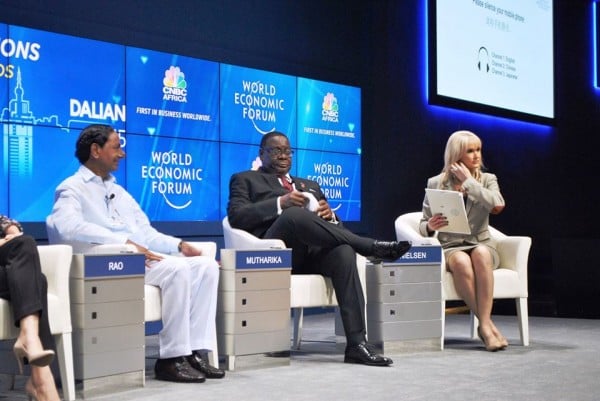 Mutharika speaking at the panel[/caption]
[caption id="attachment_94361" align="alignright" width="600"]
Mutharika speaking at the panel[/caption]
[caption id="attachment_94361" align="alignright" width="600"]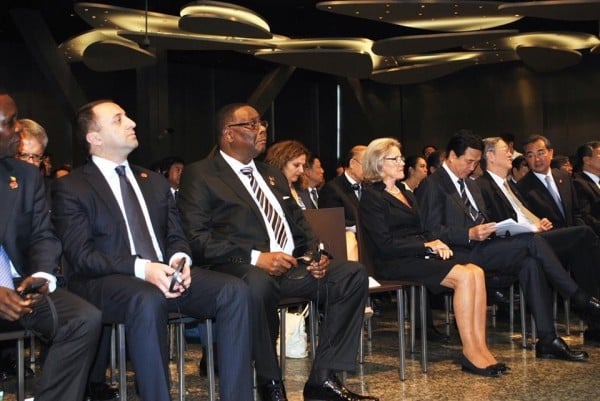 Mutharika in China listening at the opening of World Economic Forum[/caption]
Mutharika made the sentiments during a Televised Session cast live on CNBC-Africa which was part of the World Economic Forum summit dubbed ‘Annual Meeting of the new champions’ currently taking place in Dalian, China.
“I think China had been very pragmatic in its approach by focusing on rural development; we are doing the same in Malawi. We have decided to take a massive training approach for the youth in rural areas we are moving social amenities such as schools and hospitals to rural areas where most people are; we give them skills training right there.
“As in my case, I want in five years from now people should say we are better off than we were before. I want a society where people are happier than they were before; people with better incomes, good houses, good roads and better services,” Mutharika said.
Asked as to whether China’s economic woes can have influence on Malawi, Mutharika observed that economic challenges facing China would have negative impact on Malawi.
“China is crucial partner to Malawi since 2008, they have been supporting us in a number of areas such as irrigation and infrastructure development, it is also a free trade area for over 400 products,” said Mutharika.
World Economic Forum is a platform that brings together World leaders ranging from political to business to discuss challenges facing trade and investment across the Global.
This year’s meeting is called Annual Meeting of the New Champions and is being held from September 9-11 at Dalian International Conference Centre (DICC) for the second year running under the theme “charting a new course for growth’.
The Forum is expected to draw together about 2 thousand delegates.
CNBC Africa Executive Director Bronwyn Nielsen hosted the one hour panel discussion which also had Marcos Vinicius de Souza Brazilian Secretary of Innovations, Kevin Lu Chief Executive Officer and member of the Global Executive Board Partners Group Singapore and Kalvakuntla Chandrashekar Rao, Chief Minister of Telengana India.
Mutharika in China listening at the opening of World Economic Forum[/caption]
Mutharika made the sentiments during a Televised Session cast live on CNBC-Africa which was part of the World Economic Forum summit dubbed ‘Annual Meeting of the new champions’ currently taking place in Dalian, China.
“I think China had been very pragmatic in its approach by focusing on rural development; we are doing the same in Malawi. We have decided to take a massive training approach for the youth in rural areas we are moving social amenities such as schools and hospitals to rural areas where most people are; we give them skills training right there.
“As in my case, I want in five years from now people should say we are better off than we were before. I want a society where people are happier than they were before; people with better incomes, good houses, good roads and better services,” Mutharika said.
Asked as to whether China’s economic woes can have influence on Malawi, Mutharika observed that economic challenges facing China would have negative impact on Malawi.
“China is crucial partner to Malawi since 2008, they have been supporting us in a number of areas such as irrigation and infrastructure development, it is also a free trade area for over 400 products,” said Mutharika.
World Economic Forum is a platform that brings together World leaders ranging from political to business to discuss challenges facing trade and investment across the Global.
This year’s meeting is called Annual Meeting of the New Champions and is being held from September 9-11 at Dalian International Conference Centre (DICC) for the second year running under the theme “charting a new course for growth’.
The Forum is expected to draw together about 2 thousand delegates.
CNBC Africa Executive Director Bronwyn Nielsen hosted the one hour panel discussion which also had Marcos Vinicius de Souza Brazilian Secretary of Innovations, Kevin Lu Chief Executive Officer and member of the Global Executive Board Partners Group Singapore and Kalvakuntla Chandrashekar Rao, Chief Minister of Telengana India.

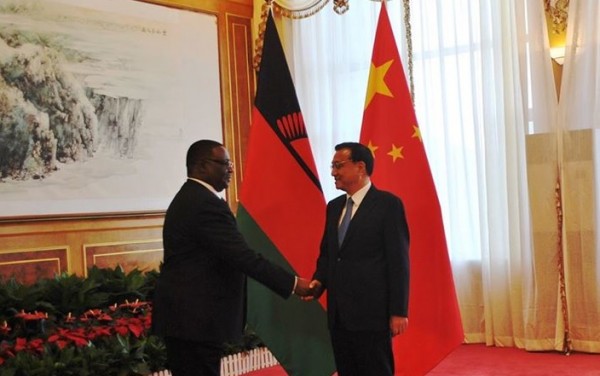 Mutharika: Chinese government has done it again for the people of Malawi[/caption]
President Peter Mutharika, who is in China for a five-day official visit, revealed about grant on Friday.
''It is great news that China has granted Malawi MK 17 billion .This gesture was disclosed to me during the audience I had with Chinese Premier (Prime Minister), Mr. Li Keqiang,'' said Mutharika through his Facebook page.
The grant, according to Mutharika, is expected to contribute towards procuring 100 police vehicles and part of it will be channelled towards completion of five community technical colleges.
He said the police vehicles will assist in improving the country's security and ensure that Malawi ''remains secured and an environment friendly where investors would feel safe to do their business''.
''Part of this grant will be channelled towards the completion of 5 more technical colleges as we continue creating the skilled labour force necessary for social and economic development''.
Mutharika also revealed that the Chinese government has promised continued support to Malawi and working in partnership as the country strives to fight poverty.
''Having completed the first phase of their projects in Malawi, the Chinese government is looking forward to start new projects very soon,'' added Mutharika.
Mutharika: Chinese government has done it again for the people of Malawi[/caption]
President Peter Mutharika, who is in China for a five-day official visit, revealed about grant on Friday.
''It is great news that China has granted Malawi MK 17 billion .This gesture was disclosed to me during the audience I had with Chinese Premier (Prime Minister), Mr. Li Keqiang,'' said Mutharika through his Facebook page.
The grant, according to Mutharika, is expected to contribute towards procuring 100 police vehicles and part of it will be channelled towards completion of five community technical colleges.
He said the police vehicles will assist in improving the country's security and ensure that Malawi ''remains secured and an environment friendly where investors would feel safe to do their business''.
''Part of this grant will be channelled towards the completion of 5 more technical colleges as we continue creating the skilled labour force necessary for social and economic development''.
Mutharika also revealed that the Chinese government has promised continued support to Malawi and working in partnership as the country strives to fight poverty.
''Having completed the first phase of their projects in Malawi, the Chinese government is looking forward to start new projects very soon,'' added Mutharika.
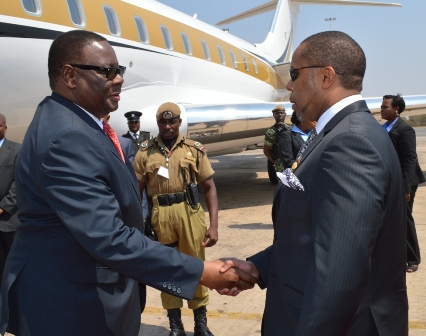
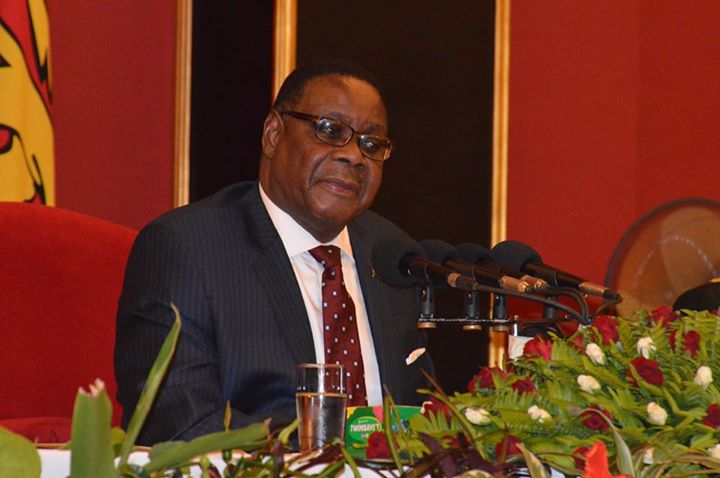
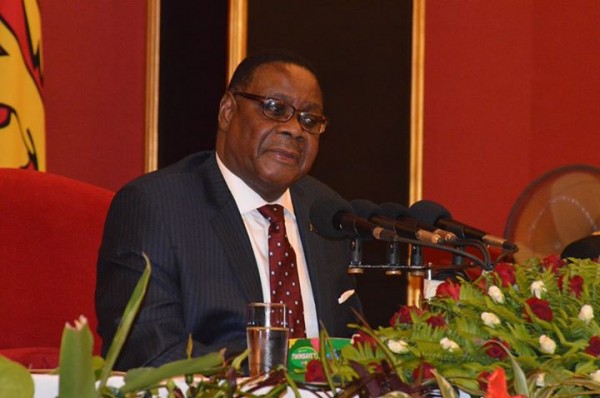 Malawian President Mutharika outlines Chinese government funded projects[/caption]
[caption id="attachment_96497" align="alignright" width="600"]
Malawian President Mutharika outlines Chinese government funded projects[/caption]
[caption id="attachment_96497" align="alignright" width="600"]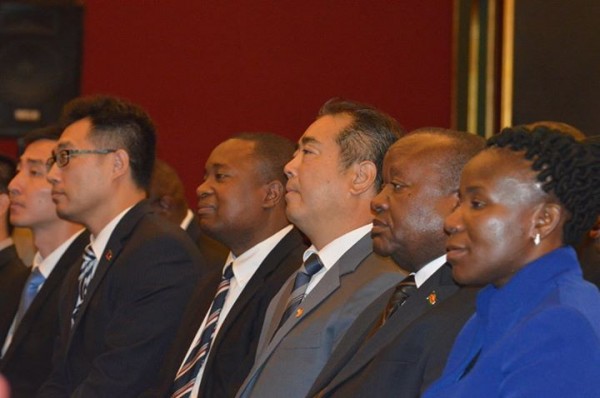 Malawi government officials and Chinese officials listeing to President Mutharka outlining the funded projects[/caption]
[caption id="attachment_96496" align="alignright" width="600"]
Malawi government officials and Chinese officials listeing to President Mutharka outlining the funded projects[/caption]
[caption id="attachment_96496" align="alignright" width="600"]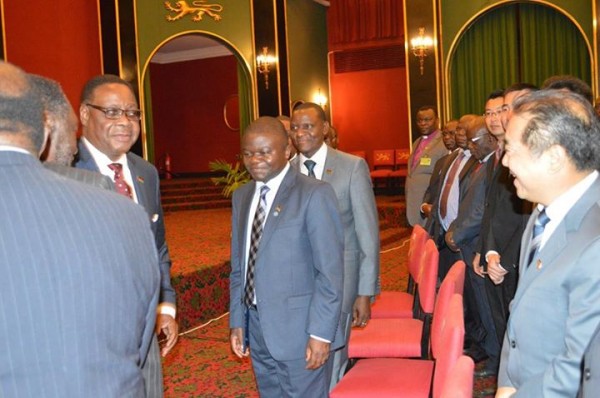 President Mutharika greeting Chinese officials at Kamuzu Palace[/caption]
Mutharika said this during a news conference in Lilongwe Wednesday where he outlined what he called the outcome of the discussions that were held during his recent trip to China with officials from the Ministry of Commerce, EXIM Bank of China and China Gezhouba Group Company Limited.
"The Chinese Government has provided grants to the Malawi Government as follows: US$25 million (130 million RMB)whose Financing Agreement was signed in January 2015; US$25 million (150 million RMB)whose Financing Agreementis being prepared for signing; and US$8 million (50 RMB million) interest-free loan, financing Agreement which was signed in January 2015," explained Mutharika.
The news conference was held barely a day after a highly-level meeting organized Cabinet Ministers to provide a face-to-face platform to address issues raised by some Civil Society Organizations (CSOs).
The CSOs requested government to clarify on Farm Input Subsidy Programme, give a status report on the country's economy, water and electricity woes.
Among the major projects which the Chinese government has pledged to undertake include a crucial but exciting 300 megawatt Kammwamba Coal Fired plant which will increase the power generating capacity of Malawi to meet the ever increasing demand according to Mutharika.
"The project cost is estimated at US$667, 232, 814," said Mutharika, revealing that other projects are subjected to further discussions and review.
The power project, which will increase power generation capacity to meet the ever increasing demand, is exciting news to both Malawians and investors who endure hours of power black outs every day.
Another project on the cards is the dual carriage road from Kanengo industrial area to Mchinji round about in Lilongwe which drastically reduce congestion on the road thereby cutting back on delays motorists experience on the road as they come from Kamuzu International airport and the northern region.
Mutharika also says he has secured Chinese grants for the construction of the Blantyre District Hospital which was unceremoniously abandoned by late Muammar Gadaffi of Libya and Cancer Centre in Blantyre at Kameza costing US$23 million.
The People's Republic of China will also provide Lilongwe with grants for procurement vehicles for the country's security agency, Malawi Police Service costing $2 million.
The Malawi leader said he secured the Chinese development projects when he held talks with Chinese Prime Minister Li Keqiang during his recent visit to China.
Another grant is the construction of a Technical Teacher Training College costing US$5 million and the construction of Community Technical Colleges costingUS$6 million.
The Chinese windfall also covers the promotion of value addition activities for the Ministry of Industry and Trade amounting to US$5 million,
In the Chinese aid buffet, there is a grant for the procurement of equipment and exchange programs for lecturers at the Malawi University of Science and TechnologyUS$2 million.
It also covers the procurement of office equipment and furniture for the Ministry of Industry and Trade amounting to US$1 million.
The is also support for technical services for the Bingu National Stadium constructed with the support of the Chinese Government amounting to US$1 million and construction of a new Ministry of Foreign Affairs Building amounting to US$3 million.
China is a crucial partner to Malawi Government since 2008, they have been supporting Malawi in a number of areas such as irrigation and infrastructure development and it is also a free trade area for over 400 products.
Malawi established diplomatic relations with Beijing on December 28, 2007 after severing ties with Taiwan with which it had relationship for 41 years.
Meanwhile, the European Union (EU) has granted Malawi government K22.6 billion for rehabilitation and expansion 21 Community Day Secondary Schools to increase access to education.
The funds will also be injected towards teachers' training. –(Additional Reporting by Yamikani Simutowe, Nyasa Times)
President Mutharika greeting Chinese officials at Kamuzu Palace[/caption]
Mutharika said this during a news conference in Lilongwe Wednesday where he outlined what he called the outcome of the discussions that were held during his recent trip to China with officials from the Ministry of Commerce, EXIM Bank of China and China Gezhouba Group Company Limited.
"The Chinese Government has provided grants to the Malawi Government as follows: US$25 million (130 million RMB)whose Financing Agreement was signed in January 2015; US$25 million (150 million RMB)whose Financing Agreementis being prepared for signing; and US$8 million (50 RMB million) interest-free loan, financing Agreement which was signed in January 2015," explained Mutharika.
The news conference was held barely a day after a highly-level meeting organized Cabinet Ministers to provide a face-to-face platform to address issues raised by some Civil Society Organizations (CSOs).
The CSOs requested government to clarify on Farm Input Subsidy Programme, give a status report on the country's economy, water and electricity woes.
Among the major projects which the Chinese government has pledged to undertake include a crucial but exciting 300 megawatt Kammwamba Coal Fired plant which will increase the power generating capacity of Malawi to meet the ever increasing demand according to Mutharika.
"The project cost is estimated at US$667, 232, 814," said Mutharika, revealing that other projects are subjected to further discussions and review.
The power project, which will increase power generation capacity to meet the ever increasing demand, is exciting news to both Malawians and investors who endure hours of power black outs every day.
Another project on the cards is the dual carriage road from Kanengo industrial area to Mchinji round about in Lilongwe which drastically reduce congestion on the road thereby cutting back on delays motorists experience on the road as they come from Kamuzu International airport and the northern region.
Mutharika also says he has secured Chinese grants for the construction of the Blantyre District Hospital which was unceremoniously abandoned by late Muammar Gadaffi of Libya and Cancer Centre in Blantyre at Kameza costing US$23 million.
The People's Republic of China will also provide Lilongwe with grants for procurement vehicles for the country's security agency, Malawi Police Service costing $2 million.
The Malawi leader said he secured the Chinese development projects when he held talks with Chinese Prime Minister Li Keqiang during his recent visit to China.
Another grant is the construction of a Technical Teacher Training College costing US$5 million and the construction of Community Technical Colleges costingUS$6 million.
The Chinese windfall also covers the promotion of value addition activities for the Ministry of Industry and Trade amounting to US$5 million,
In the Chinese aid buffet, there is a grant for the procurement of equipment and exchange programs for lecturers at the Malawi University of Science and TechnologyUS$2 million.
It also covers the procurement of office equipment and furniture for the Ministry of Industry and Trade amounting to US$1 million.
The is also support for technical services for the Bingu National Stadium constructed with the support of the Chinese Government amounting to US$1 million and construction of a new Ministry of Foreign Affairs Building amounting to US$3 million.
China is a crucial partner to Malawi Government since 2008, they have been supporting Malawi in a number of areas such as irrigation and infrastructure development and it is also a free trade area for over 400 products.
Malawi established diplomatic relations with Beijing on December 28, 2007 after severing ties with Taiwan with which it had relationship for 41 years.
Meanwhile, the European Union (EU) has granted Malawi government K22.6 billion for rehabilitation and expansion 21 Community Day Secondary Schools to increase access to education.
The funds will also be injected towards teachers' training. –(Additional Reporting by Yamikani Simutowe, Nyasa Times)

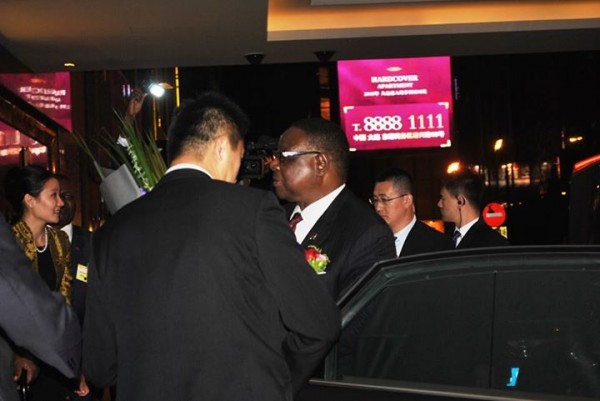 Mutharika during China visit[/caption]
But in the spirit of the recently launched, “REFORM TO TRANSFORM movement” which drives my soul, I am compelled to say, Congratulations to the government but...
All these projects are mere political instruments and are common among leaders and governments in Africa and other developing Nations. What happens is that our leaders, and foreign governments and corporations strike deals which make huge money for foreign corporations and serve political interests of foreign governments. But then our leaders benefit by boosting their political image at home for the visible catchy infrastructure. Yet, majority local rural people, who endure much of the crushing weight of poverty, do not really benefit because such projects and deals do not address their “immediate” welfare needs.
Look, most of these projects have nothing to do with the real challenges of the suffering majority in our villages. Our suffering grandparents, and mothers and children in our villages and rural centres need permanent food supply throughout the year. They need easily accessible clinics and hospitals with ever adequate medical supplies and enough professional medical practitioners. They need easily accessible education materials and facilities. They need ever flowing clean and safe water. They need substantial amount of money in their pockets to buy clothing, shoes, salt, sugar and access similar foundational necessities that address their immediate welfare.
I know somebody does not agree with me, but ask yourself, what exactly are the priority needs of our people, and how exactly do these celebrated Chinese projects solve them? What about the jobless young people who roam our streets like useless homeless cats? What about those young people struggling with miserable jobs in our cities which do not pay them even enough to pay house rent? they walk several kilometres to and from work twice a day every day and cant even afford lunch at work etc? How do these projects solve their challenges? This is the class of people that our government must be directing its effort towards, at least in the immediate consideration. The struggling people need to be lifted up the ladder from the lower stratum of our society.
Let me provoke you this way about these projects. Imagine, just for thinking purpose, they say, a hospital at Kameza? but are we sure there will be medicine in that hospital, and are we going to have nurses there since government cant employee anymore nurses? And if at all we might have some medical practitioners there, will they get salaries? What about the Technical colleges in question? After we have trained our youths, will the economy give them the jobs or business opportunities to utilize their acquired skills? Talk about the said, promotion of value addition activities at the Ministry of Industry and Trade? what value addition and to which services or products? We are ‘not really’ producing anything to add value to, not services and not products.
The only important project that only attempts to address part of our basic need is the 300 megawatt “coal fired” power plant. Yes, we need extra generation of power and energy for industrial and domestic purposes. But this project has its major drawbacks too, especially in this age when the entire world is advocating for the abandonment of fossil fuels and espousing policies that promote clean energy projects to combat effects of the fatal global warming and environmental degradation. So we can do better on that too.
Now, understand me very well. I am not saying these projects are trash and totally useless. My argument is that these are the type of projects which politicians across the developing world use just to manage their political image and entice votes while running away from implementing bold policies and initiatives which priorities interests of the poor people and address deep-rooted indigenous challenges for good.
Mutharika during China visit[/caption]
But in the spirit of the recently launched, “REFORM TO TRANSFORM movement” which drives my soul, I am compelled to say, Congratulations to the government but...
All these projects are mere political instruments and are common among leaders and governments in Africa and other developing Nations. What happens is that our leaders, and foreign governments and corporations strike deals which make huge money for foreign corporations and serve political interests of foreign governments. But then our leaders benefit by boosting their political image at home for the visible catchy infrastructure. Yet, majority local rural people, who endure much of the crushing weight of poverty, do not really benefit because such projects and deals do not address their “immediate” welfare needs.
Look, most of these projects have nothing to do with the real challenges of the suffering majority in our villages. Our suffering grandparents, and mothers and children in our villages and rural centres need permanent food supply throughout the year. They need easily accessible clinics and hospitals with ever adequate medical supplies and enough professional medical practitioners. They need easily accessible education materials and facilities. They need ever flowing clean and safe water. They need substantial amount of money in their pockets to buy clothing, shoes, salt, sugar and access similar foundational necessities that address their immediate welfare.
I know somebody does not agree with me, but ask yourself, what exactly are the priority needs of our people, and how exactly do these celebrated Chinese projects solve them? What about the jobless young people who roam our streets like useless homeless cats? What about those young people struggling with miserable jobs in our cities which do not pay them even enough to pay house rent? they walk several kilometres to and from work twice a day every day and cant even afford lunch at work etc? How do these projects solve their challenges? This is the class of people that our government must be directing its effort towards, at least in the immediate consideration. The struggling people need to be lifted up the ladder from the lower stratum of our society.
Let me provoke you this way about these projects. Imagine, just for thinking purpose, they say, a hospital at Kameza? but are we sure there will be medicine in that hospital, and are we going to have nurses there since government cant employee anymore nurses? And if at all we might have some medical practitioners there, will they get salaries? What about the Technical colleges in question? After we have trained our youths, will the economy give them the jobs or business opportunities to utilize their acquired skills? Talk about the said, promotion of value addition activities at the Ministry of Industry and Trade? what value addition and to which services or products? We are ‘not really’ producing anything to add value to, not services and not products.
The only important project that only attempts to address part of our basic need is the 300 megawatt “coal fired” power plant. Yes, we need extra generation of power and energy for industrial and domestic purposes. But this project has its major drawbacks too, especially in this age when the entire world is advocating for the abandonment of fossil fuels and espousing policies that promote clean energy projects to combat effects of the fatal global warming and environmental degradation. So we can do better on that too.
Now, understand me very well. I am not saying these projects are trash and totally useless. My argument is that these are the type of projects which politicians across the developing world use just to manage their political image and entice votes while running away from implementing bold policies and initiatives which priorities interests of the poor people and address deep-rooted indigenous challenges for good.
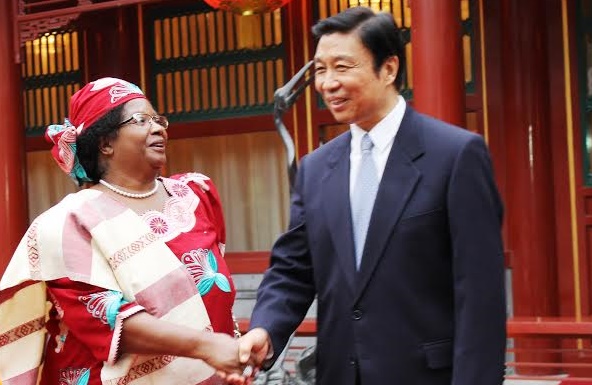

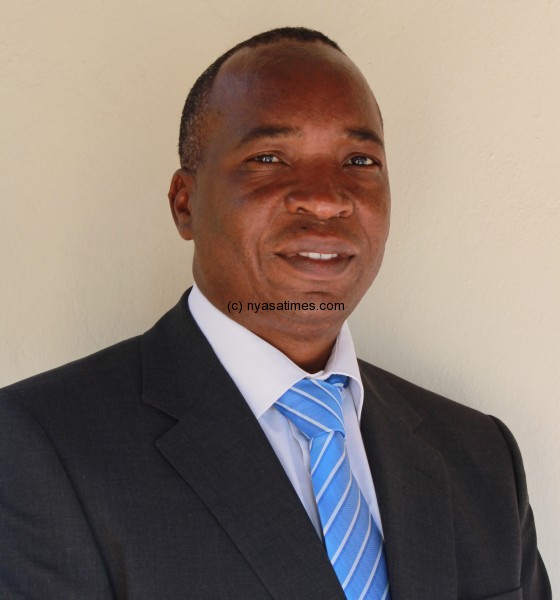 Chisi: There are hidden strings[/caption]
[caption id="attachment_38990" align="alignright" width="534"]
Chisi: There are hidden strings[/caption]
[caption id="attachment_38990" align="alignright" width="534"]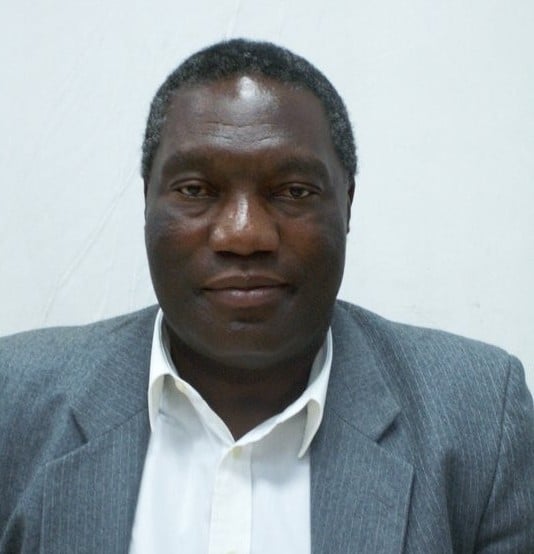 Mvula: No freeChinese lunch[/caption]
During interviews on Capital Radio, critics ranging from University of Malawi dons, political commentators, politicians and analysts have been sharing mixed reaction to the Chinese aid.
People who also spoke to Nyasa Times expressed different views with others saying Chinese were welcome as investors but not as “vendors or shoe-shiners”.
They also noted that some Chinese are bringing bad habits as well as trade, investment, jobs and skills.
No strings attached
Happy Kayuni, Associate Professor and head of Political and Administrative studies at the University of Malawi, Chancellor College told Capital Radio that Malawi should “carefully look at strategic interests” of China.
Kayuni said China “doesn’t ask issues of good governance” while Western donors “ensure that we improve our governance structures.”
Malawi's President, Peter Mutharika, has declared himself satisfied with his government's relations with China and the development aid package. Mutharika said the Chinese projects come with "no strings attached".
But Umodzi Party president John Chisi said there are “hidden” strings by the Chinese.
“What we have heard is what Malawi is gaining But we have not heard what China is going to gain from this country,” said Chisi on the radio.
“The Chinese might negotiate [to take control of] our minerals,” said Chisi, who was quick to add “I am speculating obviously.”
Chisi said: “To say that there is no condition is not true. There is no way China can take their tax payers money and give Malawi for nothing. There is no free lunch. “
The politician who contested and flopped in the 2014 presidential polls said the government should come clean on what will China benefit from Malawi.
“I have no problem with our President but I want our President to come clean. I don’t want to know that china is now controlling half of Malawi because of the grants. We cannot just be excited [the devil is in the details],” he said
Economist and chairperson of Economist Association of Malawi, Henry Kachaje noted that China “tend to bring their own labour force” in their projects on jobs that can be handled by locals.
“Its exciting thing that we are getting projects on the ground [but], we need jobs for Malawians,” he said.
Parliament’s nod
Political commentator Humphreys Mvula said parliament should be approving such grants and loans.
“It is good to have a project in Malawi but I did expect such projects should go through parliament to approve the loan or grants.
“It is supposed to be approved through a parliamentary presentation by Minister of Finance,” said Mvula.
He also pointed out that Chinese do not give free money, saying for Beijing money it is given in exchange of what they will get out of the country.
The Chinese aid comes barely days after Finance Minister Goodall Gondwe ruled out the coming back of Malawi traditional donors- from Western countries – to prop up the government of Malawi purse.
Different breed
Prominent newspaper columnist, George Kasakula who is also Editor-In-Chief of Malawi’s biggest media house, Times Group, wrote on his “Hitting Hard” column in Malawi News that the Chinese are a “different breed” of donors as locals find it hard to embezzle development funds.
“ They don’t patronise anybody when they give you a loan to build something but, more importantly, they do all the work by themselves leaving no room for thieving civil servants to dip their dirty fingers into the kitty.
“They are hard workers unlike some lazy bone compatriots and they will deliver the projects within the specified time. In short, when the Chinese promise and put pen to paper, they do not waste time but they deliver,” writes Kasakula.
Usually money is put into escrow accounts in Beijing; then a list of infrastructure projects is drawn up, Chinese companies are given contracts to build them and funds are transferred to company accounts. The country gets development projects but no cash. At least that is the theory, according to The Economist.
Kasakula cites the projects that China has put its mark on Malawi such as the country's first five-star hotel, $90m worth of well-appointed rooms, a state-of-the-art Bingu Conference Centre and 14 opulent presidential suites. Then the Bingu stadium in Area 47— “massive structure that we can all be proud of.”
In his newspaper column, Kasakula also pointed out: “It is never lost on me that, these are loans that as a country, we will have to pay back to the Chinese but by all standards, they are wise investments.”
Funded projects
Of the seven projects only three are grants totalling $58 million (K33 billion) for the construction of the Blantyre District Hospital and Cancer Centre in Blantyre. The Blantyre District Hospital is set to be built at Kameza on the site where the abandoned Muammar Gaddafi Hospital Project was.
The projects would be financed by China Exim Bank, main lenders, while most would be implemented by China Gezhouba Group Company Limited.
Chinese aid figures are treated as state secrets. Exim Bank publish no figures about their vast loans to poor countries.
Among the grants which China has made is $2 million (about K1.1 billion) for the procurement of police for the Malawi Police Service, construction of a technical teacher’s training college costing $5 million (about K2.8 billion) and construction of community technical colleges costing $6 million.
Under the grants, China will also support technical services for the Bingu National Stadium for $1 million (K570 million), construction of a new Ministry of Foreign Affairs and International Cooperation building amounting to $3 million and procurement of office equipment and furniture for the Ministry of Industry and Trade amounting to $1 million.
China has pended for review road projects namely Tsangano-Neno-Mwanza Road, Mangochi-Makanjira Road and the upgrading of the Phombeya-Makanjira-Nkhotakota-Chatoloma 220 kv power line.
Mvula: No freeChinese lunch[/caption]
During interviews on Capital Radio, critics ranging from University of Malawi dons, political commentators, politicians and analysts have been sharing mixed reaction to the Chinese aid.
People who also spoke to Nyasa Times expressed different views with others saying Chinese were welcome as investors but not as “vendors or shoe-shiners”.
They also noted that some Chinese are bringing bad habits as well as trade, investment, jobs and skills.
No strings attached
Happy Kayuni, Associate Professor and head of Political and Administrative studies at the University of Malawi, Chancellor College told Capital Radio that Malawi should “carefully look at strategic interests” of China.
Kayuni said China “doesn’t ask issues of good governance” while Western donors “ensure that we improve our governance structures.”
Malawi's President, Peter Mutharika, has declared himself satisfied with his government's relations with China and the development aid package. Mutharika said the Chinese projects come with "no strings attached".
But Umodzi Party president John Chisi said there are “hidden” strings by the Chinese.
“What we have heard is what Malawi is gaining But we have not heard what China is going to gain from this country,” said Chisi on the radio.
“The Chinese might negotiate [to take control of] our minerals,” said Chisi, who was quick to add “I am speculating obviously.”
Chisi said: “To say that there is no condition is not true. There is no way China can take their tax payers money and give Malawi for nothing. There is no free lunch. “
The politician who contested and flopped in the 2014 presidential polls said the government should come clean on what will China benefit from Malawi.
“I have no problem with our President but I want our President to come clean. I don’t want to know that china is now controlling half of Malawi because of the grants. We cannot just be excited [the devil is in the details],” he said
Economist and chairperson of Economist Association of Malawi, Henry Kachaje noted that China “tend to bring their own labour force” in their projects on jobs that can be handled by locals.
“Its exciting thing that we are getting projects on the ground [but], we need jobs for Malawians,” he said.
Parliament’s nod
Political commentator Humphreys Mvula said parliament should be approving such grants and loans.
“It is good to have a project in Malawi but I did expect such projects should go through parliament to approve the loan or grants.
“It is supposed to be approved through a parliamentary presentation by Minister of Finance,” said Mvula.
He also pointed out that Chinese do not give free money, saying for Beijing money it is given in exchange of what they will get out of the country.
The Chinese aid comes barely days after Finance Minister Goodall Gondwe ruled out the coming back of Malawi traditional donors- from Western countries – to prop up the government of Malawi purse.
Different breed
Prominent newspaper columnist, George Kasakula who is also Editor-In-Chief of Malawi’s biggest media house, Times Group, wrote on his “Hitting Hard” column in Malawi News that the Chinese are a “different breed” of donors as locals find it hard to embezzle development funds.
“ They don’t patronise anybody when they give you a loan to build something but, more importantly, they do all the work by themselves leaving no room for thieving civil servants to dip their dirty fingers into the kitty.
“They are hard workers unlike some lazy bone compatriots and they will deliver the projects within the specified time. In short, when the Chinese promise and put pen to paper, they do not waste time but they deliver,” writes Kasakula.
Usually money is put into escrow accounts in Beijing; then a list of infrastructure projects is drawn up, Chinese companies are given contracts to build them and funds are transferred to company accounts. The country gets development projects but no cash. At least that is the theory, according to The Economist.
Kasakula cites the projects that China has put its mark on Malawi such as the country's first five-star hotel, $90m worth of well-appointed rooms, a state-of-the-art Bingu Conference Centre and 14 opulent presidential suites. Then the Bingu stadium in Area 47— “massive structure that we can all be proud of.”
In his newspaper column, Kasakula also pointed out: “It is never lost on me that, these are loans that as a country, we will have to pay back to the Chinese but by all standards, they are wise investments.”
Funded projects
Of the seven projects only three are grants totalling $58 million (K33 billion) for the construction of the Blantyre District Hospital and Cancer Centre in Blantyre. The Blantyre District Hospital is set to be built at Kameza on the site where the abandoned Muammar Gaddafi Hospital Project was.
The projects would be financed by China Exim Bank, main lenders, while most would be implemented by China Gezhouba Group Company Limited.
Chinese aid figures are treated as state secrets. Exim Bank publish no figures about their vast loans to poor countries.
Among the grants which China has made is $2 million (about K1.1 billion) for the procurement of police for the Malawi Police Service, construction of a technical teacher’s training college costing $5 million (about K2.8 billion) and construction of community technical colleges costing $6 million.
Under the grants, China will also support technical services for the Bingu National Stadium for $1 million (K570 million), construction of a new Ministry of Foreign Affairs and International Cooperation building amounting to $3 million and procurement of office equipment and furniture for the Ministry of Industry and Trade amounting to $1 million.
China has pended for review road projects namely Tsangano-Neno-Mwanza Road, Mangochi-Makanjira Road and the upgrading of the Phombeya-Makanjira-Nkhotakota-Chatoloma 220 kv power line.

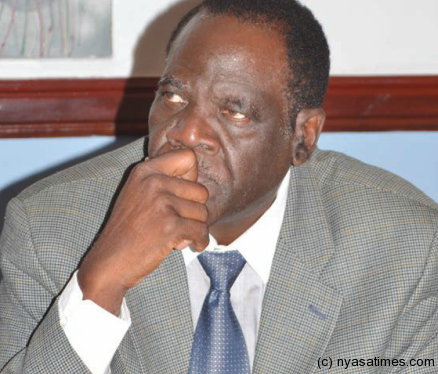 Dan Msowoya: North Malawi deprived[/caption]
The seven projects which include the construction state-of-the-art international airport at Chileka in the commercial capital Blantyre, have opened a can of worms across the citizenry with some in defence of the state and others doing otherwise.
This week, Minister of Information and government spokesperson Jappie Mhango defended government saying the northern region was “equally benefitting” from government development projects.
Mhango cited the to-be constructed Karonga Stadium in Karonga and the University of Mombera in Mzimba, among others.
But political activist and ex-Alliance for Democracy (Aford) secretary general Dan Msowoya quashed Mhango’s arguments saying “we’ve been deprived.”
He told Nyasa Times that there was no guarantee that the money for construction of the stadium and the university in Karonga and Mzimba respectively was available.
“And the projects are not actually part of the seven projects we’re talking about.”
He added: “Actually, it took billions of kwacha to build the university at Ndata (private palace of late Bingu wa Mutharika), how can a mere K100 million build the so called Mombera University. And, we don’t know whether any money is available for the project[s].”
Social commentator Gerrard Nkhata depriving the northern region of the projects was a “non-starter” not only for the Democratic Progressive Party (DPP) but also to the government of Malawi.
“It is the most important part of Malawi in terms of minerals and closeness to Tanzania where the economy is growing at a supersonic speed,” he argued.
Nkhata said “except for the electricity and internet projects, I would cancel all the projects. If I were government I would replace them with a railway to connect the North to the Centre. This would significantly help in transporting the minerals between the regions.”
Unconstitutional
Msowoya described the allocation of the projects as being “unconstitutional.”
He said: “I don’t remember the issue being ever tabled in parliament. If it were the question would have been why not in the north.”
Msowoya then described politicians from the Northern Region “impotent” because they had failed to deliver.
“They’re tamed. They cannot think on their own. Their impotence has been detrimental to development in the northern region,” he argued.
He claimed in 1996 government secured a loan from the Kuwait Bank for the Mzimba-Kafukule-Njakwa Road but the money was diverted for the construction of a road in Mangochi during the United Democratic Front (UDF).
“It was because of the same impotence of our leaders,” he argued.
Msowoya, also a spokesperson for a forum advocating for a federal system of government in the country, said “all these should not have been issues if we were run by a federal system of government.”
Government should listen
Synod of Livingstonia General Secretary Levi Nyondo suggested “government should listen by rescinding its decision.”
He said all the regions including the northern region looked up to government as their “mother.” But, he added, it was disappointing that government was not distributing the national cake equally.
“They [government] have demonstrated that our [northern region] is not a priority.”
Opposing views
But UK-based social and development scientist Pearson Nkhoma said he had no problems with the projects.
“This shows Malawi has more potential for investment. Government should now do more to attract Russia or Brazil to invest.
“China cannot invest in every district. The Centre and the South are also part of Malawi. The development is happening in Malawi even if it were all allocated in Nsanje,” argued Nkhoma.
Funded projects
Of the seven projects only three are grants totalling $58 million (K33 billion) for the construction of the Blantyre District Hospital and Cancer Centre in Blantyre. The Blantyre District Hospital is set to be built at Kameza on the site where the abandoned Muammar Gaddafi Hospital Project was.
The projects would be financed by China Exim Bank, main lenders, while most would be implemented by China Gezhouba Group Company Limited.
Chinese aid figures are treated as state secrets. Exim Bank publish no figures about their vast loans to poor countries.
Among the grants which China has made is $2 million (about K1.1 billion) for the procurement of police for the Malawi Police Service, construction of a technical teacher’s training college costing $5 million (about K2.8 billion) and construction of community technical colleges costing $6 million.
Under the grants, China will also support technical services for the Bingu National Stadium for $1 million (K570 million), construction of a new Ministry of Foreign Affairs and International Cooperation building amounting to $3 million and procurement of office equipment and furniture for the Ministry of Industry and Trade amounting to $1 million.
China has pended for review road projects namely Tsangano-Neno-Mwanza Road, Mangochi-Makanjira Road and the upgrading of the Phombeya-Makanjira-Nkhotakota-Chatoloma 220 kv power line.
Dan Msowoya: North Malawi deprived[/caption]
The seven projects which include the construction state-of-the-art international airport at Chileka in the commercial capital Blantyre, have opened a can of worms across the citizenry with some in defence of the state and others doing otherwise.
This week, Minister of Information and government spokesperson Jappie Mhango defended government saying the northern region was “equally benefitting” from government development projects.
Mhango cited the to-be constructed Karonga Stadium in Karonga and the University of Mombera in Mzimba, among others.
But political activist and ex-Alliance for Democracy (Aford) secretary general Dan Msowoya quashed Mhango’s arguments saying “we’ve been deprived.”
He told Nyasa Times that there was no guarantee that the money for construction of the stadium and the university in Karonga and Mzimba respectively was available.
“And the projects are not actually part of the seven projects we’re talking about.”
He added: “Actually, it took billions of kwacha to build the university at Ndata (private palace of late Bingu wa Mutharika), how can a mere K100 million build the so called Mombera University. And, we don’t know whether any money is available for the project[s].”
Social commentator Gerrard Nkhata depriving the northern region of the projects was a “non-starter” not only for the Democratic Progressive Party (DPP) but also to the government of Malawi.
“It is the most important part of Malawi in terms of minerals and closeness to Tanzania where the economy is growing at a supersonic speed,” he argued.
Nkhata said “except for the electricity and internet projects, I would cancel all the projects. If I were government I would replace them with a railway to connect the North to the Centre. This would significantly help in transporting the minerals between the regions.”
Unconstitutional
Msowoya described the allocation of the projects as being “unconstitutional.”
He said: “I don’t remember the issue being ever tabled in parliament. If it were the question would have been why not in the north.”
Msowoya then described politicians from the Northern Region “impotent” because they had failed to deliver.
“They’re tamed. They cannot think on their own. Their impotence has been detrimental to development in the northern region,” he argued.
He claimed in 1996 government secured a loan from the Kuwait Bank for the Mzimba-Kafukule-Njakwa Road but the money was diverted for the construction of a road in Mangochi during the United Democratic Front (UDF).
“It was because of the same impotence of our leaders,” he argued.
Msowoya, also a spokesperson for a forum advocating for a federal system of government in the country, said “all these should not have been issues if we were run by a federal system of government.”
Government should listen
Synod of Livingstonia General Secretary Levi Nyondo suggested “government should listen by rescinding its decision.”
He said all the regions including the northern region looked up to government as their “mother.” But, he added, it was disappointing that government was not distributing the national cake equally.
“They [government] have demonstrated that our [northern region] is not a priority.”
Opposing views
But UK-based social and development scientist Pearson Nkhoma said he had no problems with the projects.
“This shows Malawi has more potential for investment. Government should now do more to attract Russia or Brazil to invest.
“China cannot invest in every district. The Centre and the South are also part of Malawi. The development is happening in Malawi even if it were all allocated in Nsanje,” argued Nkhoma.
Funded projects
Of the seven projects only three are grants totalling $58 million (K33 billion) for the construction of the Blantyre District Hospital and Cancer Centre in Blantyre. The Blantyre District Hospital is set to be built at Kameza on the site where the abandoned Muammar Gaddafi Hospital Project was.
The projects would be financed by China Exim Bank, main lenders, while most would be implemented by China Gezhouba Group Company Limited.
Chinese aid figures are treated as state secrets. Exim Bank publish no figures about their vast loans to poor countries.
Among the grants which China has made is $2 million (about K1.1 billion) for the procurement of police for the Malawi Police Service, construction of a technical teacher’s training college costing $5 million (about K2.8 billion) and construction of community technical colleges costing $6 million.
Under the grants, China will also support technical services for the Bingu National Stadium for $1 million (K570 million), construction of a new Ministry of Foreign Affairs and International Cooperation building amounting to $3 million and procurement of office equipment and furniture for the Ministry of Industry and Trade amounting to $1 million.
China has pended for review road projects namely Tsangano-Neno-Mwanza Road, Mangochi-Makanjira Road and the upgrading of the Phombeya-Makanjira-Nkhotakota-Chatoloma 220 kv power line.
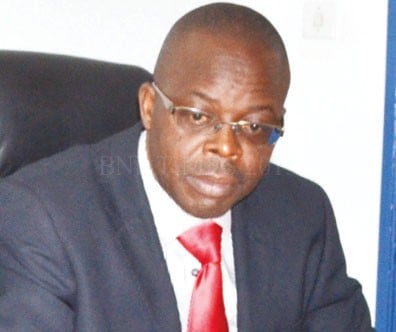

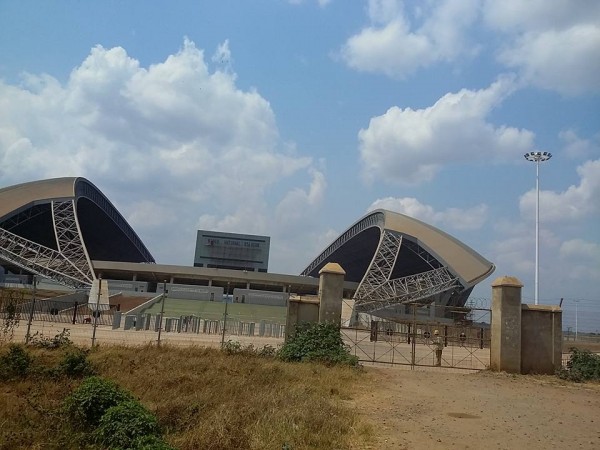 Bingu stadium In Lilongwe[/caption]
Chief Archtect in the Ministry of Sports McNight Munthali said the insecurity at the facility has led to the stoppage in watering the ground.
Munthali has however advised Malawi Police Service to erect a 24 hour station at the stadium to ensure there is maximum security.
But the government can afford a smile as the Chinese government through the contractors who have built the stadium will bring in new pumps shortly.
According to Munthali, the pumps will be airlifted to Malawi since shipping takes over a long time.
The fully Chinese funded project has faced theft challenges since the construction started both with both employees working at the stadium and people from surrounding areas involved in the scam.
Reports indicates that thieves also recently stole electric cables used to lighten the stadium.
Meanwhile, Football Association of Malawi (Fam) through its Executive Member James Mwenda have expressed satisfaction with the progress so far.
Mwenda has since called upon all Malawians to take a responsibility of taking care of the multi-million dollar olympic stadium.
E-ticketing
Meanwhile, Ministry of Sports and Culture sports director Jameson Ndalama has said government has resolved that the Bingu stadium should be the first in the country to have the e-ticketing system as one way of eliminating rampant gate fraud.
Ndalama said there are plans to have all stadiums in the country using e-ticketing system, starting withhe Bingu Stadium.
He said e- will help to end gate fraud and congestion at the gates, saying “here will be no selling of tickets at the gates or around the stadium.”.
According to Ndalama said the e-ticketing system would be run as a separate project from the construction of the stadium and government will call for bids from interested companies to managed the e-ticketing at the stadium.
Bingu stadium In Lilongwe[/caption]
Chief Archtect in the Ministry of Sports McNight Munthali said the insecurity at the facility has led to the stoppage in watering the ground.
Munthali has however advised Malawi Police Service to erect a 24 hour station at the stadium to ensure there is maximum security.
But the government can afford a smile as the Chinese government through the contractors who have built the stadium will bring in new pumps shortly.
According to Munthali, the pumps will be airlifted to Malawi since shipping takes over a long time.
The fully Chinese funded project has faced theft challenges since the construction started both with both employees working at the stadium and people from surrounding areas involved in the scam.
Reports indicates that thieves also recently stole electric cables used to lighten the stadium.
Meanwhile, Football Association of Malawi (Fam) through its Executive Member James Mwenda have expressed satisfaction with the progress so far.
Mwenda has since called upon all Malawians to take a responsibility of taking care of the multi-million dollar olympic stadium.
E-ticketing
Meanwhile, Ministry of Sports and Culture sports director Jameson Ndalama has said government has resolved that the Bingu stadium should be the first in the country to have the e-ticketing system as one way of eliminating rampant gate fraud.
Ndalama said there are plans to have all stadiums in the country using e-ticketing system, starting withhe Bingu Stadium.
He said e- will help to end gate fraud and congestion at the gates, saying “here will be no selling of tickets at the gates or around the stadium.”.
According to Ndalama said the e-ticketing system would be run as a separate project from the construction of the stadium and government will call for bids from interested companies to managed the e-ticketing at the stadium.

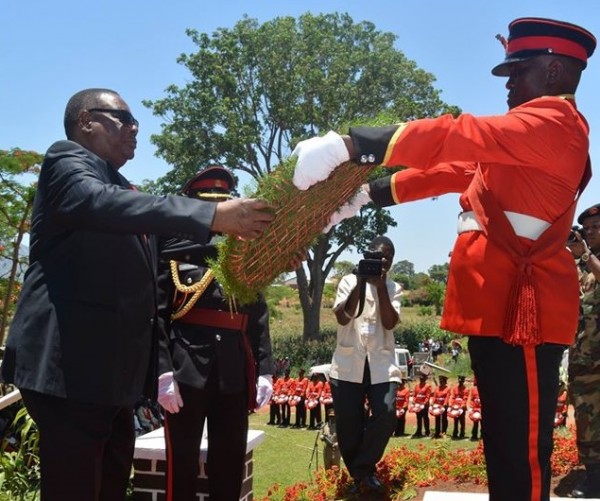 President Mutharika receives wreath of poppy[/caption]
[caption id="attachment_97505" align="alignright" width="600"]
President Mutharika receives wreath of poppy[/caption]
[caption id="attachment_97505" align="alignright" width="600"]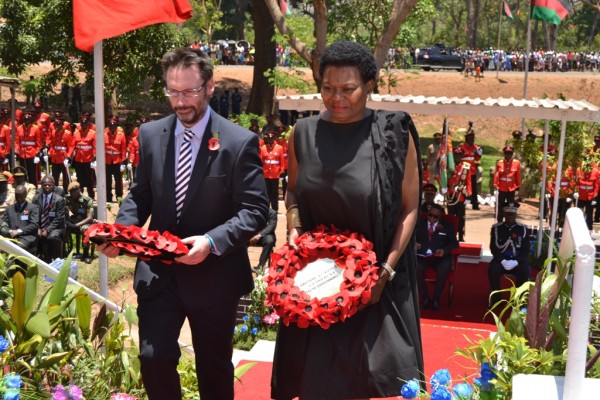 Members of the diplomatic corps (Britain and South Africa) with their wreaths during the remembrance day.Pic-Francis Mphweya-MANA[/caption]
The Chinese ambassador to Malawi was given a chance to lay a wreath at the war memorial tower in Zomba representing his country. This was after the British High Commissioner to Malawi Michael Nevin and the South African High Commissioner to Malawi laid wreaths in Malawi’s old capital representing the diplomatic community in the country.
The special recognition of China by the Malawi government came just days after President Peter Mutharika openly said the country's traditional European donors may not be returning to support the budgetary support although they might continue giving assistance outside the budget.
The British envoy to Malawi, Nevin looked not much surprised as the Chinese ambassador to Malawi walked slowly, solemnly then placed his wreath at the cenotaph.
The former colonial power, Britain was the major budgetary support donor for Malawi which accounted for 40 per cent of the total national budget.
However, China has emerged to be ,Malawi's great donor and friend as the new world economic and political power and has constructed multibillion infrastructure developments in Malawi and have promised seven new projects that will propel Malawi to new development heights in a few years to come.
President Peter Mutharika and opposition leader Lazarus Chakwera briefly united at the pillar to remember the heroes of World War I and World War II when the nation fell silent at 11am.
Members of the diplomatic corps (Britain and South Africa) with their wreaths during the remembrance day.Pic-Francis Mphweya-MANA[/caption]
The Chinese ambassador to Malawi was given a chance to lay a wreath at the war memorial tower in Zomba representing his country. This was after the British High Commissioner to Malawi Michael Nevin and the South African High Commissioner to Malawi laid wreaths in Malawi’s old capital representing the diplomatic community in the country.
The special recognition of China by the Malawi government came just days after President Peter Mutharika openly said the country's traditional European donors may not be returning to support the budgetary support although they might continue giving assistance outside the budget.
The British envoy to Malawi, Nevin looked not much surprised as the Chinese ambassador to Malawi walked slowly, solemnly then placed his wreath at the cenotaph.
The former colonial power, Britain was the major budgetary support donor for Malawi which accounted for 40 per cent of the total national budget.
However, China has emerged to be ,Malawi's great donor and friend as the new world economic and political power and has constructed multibillion infrastructure developments in Malawi and have promised seven new projects that will propel Malawi to new development heights in a few years to come.
President Peter Mutharika and opposition leader Lazarus Chakwera briefly united at the pillar to remember the heroes of World War I and World War II when the nation fell silent at 11am.
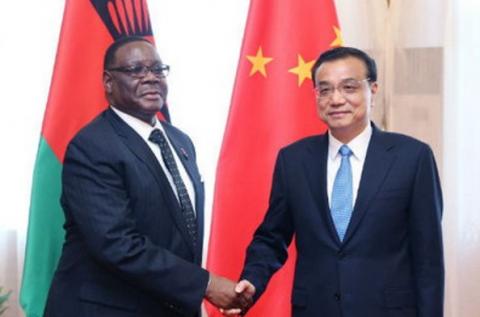


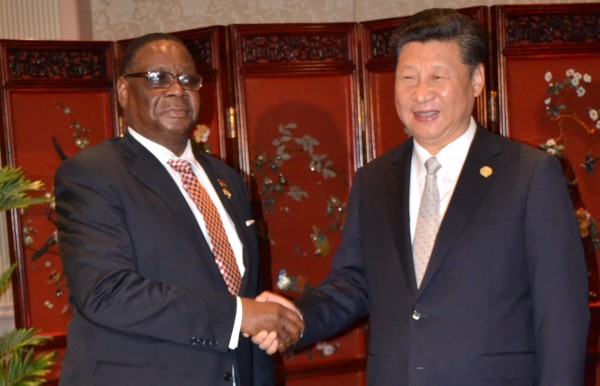 China's President Xi Jinping welcomes president Peter Mutharika to a breakfact meeting at the Michalloangelo Hotel, Johannesburg during the FOCAC summit. Pix Gospel Mwalwanda[/caption]
[caption id="attachment_99192" align="alignright" width="600"]
China's President Xi Jinping welcomes president Peter Mutharika to a breakfact meeting at the Michalloangelo Hotel, Johannesburg during the FOCAC summit. Pix Gospel Mwalwanda[/caption]
[caption id="attachment_99192" align="alignright" width="600"]
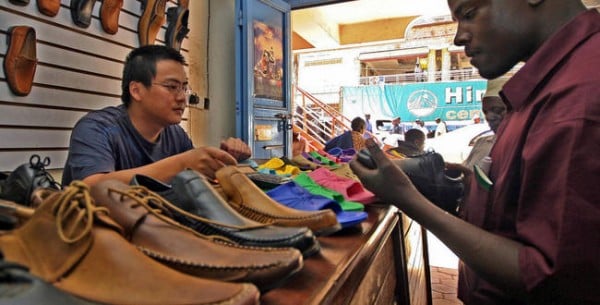 A man browses through pairs of Chinese made shoes in a shop. AFP PHOTO / STUART PRICE.[/caption]
[caption id="attachment_100798" align="alignright" width="450"]
A man browses through pairs of Chinese made shoes in a shop. AFP PHOTO / STUART PRICE.[/caption]
[caption id="attachment_100798" align="alignright" width="450"]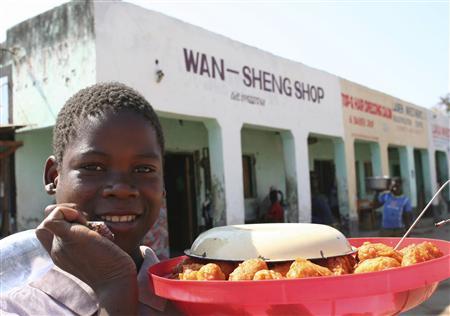 A Malawian hawker sells food outside a Chinese owned shop.-REUTERS/Ed Cropley[/caption]
The businesspersons, approximately over two hundred, say it is becoming increasingly difficult to compete with the foreigners as these, they claim, “choose to sell their goods at unbelievably low prices” and thereby “obstruct fair competition.”
Spokesperson of the traders who are presently to have themselves registered as a group, Osman Kapida, singled out the Chinese as their “worst thorn in the flesh.”
Kapida said that there is “a huge competition gap” that exists between the two sides.
“They don’t care when they are setting up prices because they really don’t care about losses. But we do because in our businesses we always have got bank loans to re-pay, and lending rates in the country are exorbitant,” said Kapida.
He pegged the current lending rates at forty nine to fifty per cent, and claimed for the foreign traders the rates can be “as low as one per cent.”
Not Protected
Kapida blamed government for casting a blind eye on their predicament even despite the fact that they “know what is happening.”
He said it was not “unfortunate” that the Ministry of Industry and Trade was not taking action on the matter.
“We’re not protected,” he said. “We’re not, and it is frustrating.”
According to the business laws of Malawi, foreigners are not supposed to engage directly with customers in retail businesses but rather on wholesale.
Last year, Kapida claimed, they tried to petition government but the Ministry of Trade spokesperson at the time asked them “why they were complaining about the Chinese only.”
But Kapida told Nyasa Times that they did so because it is the Chinese’s way of doing businesses that “hurts most.
“Why can’t they do wholesale and let us by from them?” he queried.
Unspecified Action
The grouping is since preparing a fresh petition with warning that should government not respond positively they will stage unspecified action.
“We will not do anything for now. But should we notice that government is in no mood to support us, we will let them know how frustrated we are,” warned Kapida.
In 2011, six Chinese shops were closed in Dedza because the owners were operating without permits.
The local merchants said they could not compete with the Chinese businesspersons who flooded the market with cheap products.
In 2012, businesspersons in Karonga expressed similar sentiments of the Chinese traders over the same. During the Presidential Commission of Inquiry into the July 2011 anti-government protests, scores of people of Karonga blatantly said they had looted shops that belonged to the Chinese nationals because they “hate them.”
Later, 33 vendors signed a petition that was presented to the District Commissioner which claimed that the Chinese were “suffocating” their businesses.
Late president Bingu wa Mutharika, who initiated bilateral relations with China, always appealed to Malawians to be more positive of investment from Beijing, saying the Chinese government “has brought a lot of development in this country.”
Ministry of Industry and Trade officials could not immediately comment .
A Malawian hawker sells food outside a Chinese owned shop.-REUTERS/Ed Cropley[/caption]
The businesspersons, approximately over two hundred, say it is becoming increasingly difficult to compete with the foreigners as these, they claim, “choose to sell their goods at unbelievably low prices” and thereby “obstruct fair competition.”
Spokesperson of the traders who are presently to have themselves registered as a group, Osman Kapida, singled out the Chinese as their “worst thorn in the flesh.”
Kapida said that there is “a huge competition gap” that exists between the two sides.
“They don’t care when they are setting up prices because they really don’t care about losses. But we do because in our businesses we always have got bank loans to re-pay, and lending rates in the country are exorbitant,” said Kapida.
He pegged the current lending rates at forty nine to fifty per cent, and claimed for the foreign traders the rates can be “as low as one per cent.”
Not Protected
Kapida blamed government for casting a blind eye on their predicament even despite the fact that they “know what is happening.”
He said it was not “unfortunate” that the Ministry of Industry and Trade was not taking action on the matter.
“We’re not protected,” he said. “We’re not, and it is frustrating.”
According to the business laws of Malawi, foreigners are not supposed to engage directly with customers in retail businesses but rather on wholesale.
Last year, Kapida claimed, they tried to petition government but the Ministry of Trade spokesperson at the time asked them “why they were complaining about the Chinese only.”
But Kapida told Nyasa Times that they did so because it is the Chinese’s way of doing businesses that “hurts most.
“Why can’t they do wholesale and let us by from them?” he queried.
Unspecified Action
The grouping is since preparing a fresh petition with warning that should government not respond positively they will stage unspecified action.
“We will not do anything for now. But should we notice that government is in no mood to support us, we will let them know how frustrated we are,” warned Kapida.
In 2011, six Chinese shops were closed in Dedza because the owners were operating without permits.
The local merchants said they could not compete with the Chinese businesspersons who flooded the market with cheap products.
In 2012, businesspersons in Karonga expressed similar sentiments of the Chinese traders over the same. During the Presidential Commission of Inquiry into the July 2011 anti-government protests, scores of people of Karonga blatantly said they had looted shops that belonged to the Chinese nationals because they “hate them.”
Later, 33 vendors signed a petition that was presented to the District Commissioner which claimed that the Chinese were “suffocating” their businesses.
Late president Bingu wa Mutharika, who initiated bilateral relations with China, always appealed to Malawians to be more positive of investment from Beijing, saying the Chinese government “has brought a lot of development in this country.”
Ministry of Industry and Trade officials could not immediately comment .

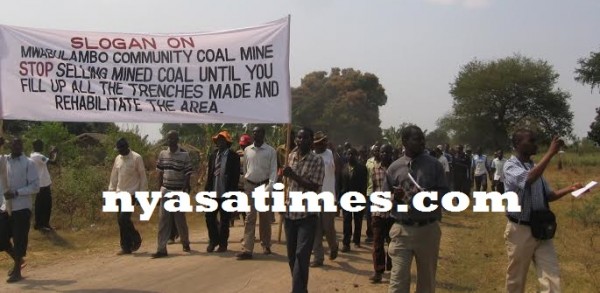 Marching protestors heading to coal mine- Photo by Tiwonge Kumwenda, Nyasa Times[/caption]
However, despite all the bells and whistles that accompanied the signing of the agreement, it still looked to me like a host of complexities covered up in a few niceties. Stay with me, I will explain why.
At first glance one would immediately think, of course, why did we not think of this earlier. These people are geniuses. This is it, a panacea to our endless energy woes. Imagine, no more blackout nightmares, no more inadequate energy generation that negatively impacts on direct foreign investment, on top of that, Malawi's dream of predominantly becoming a production based economy would no longer be a far fetched reality. Exciting news indeed, isn't it?
Hold on a second, we are talking about burning coal right? Have we considered all the long-term effects of burning coal on the people living in the area earmarked for the plant? What about the surrounding environment? Have we considered the air, rivers and ground water? Where would villagers collect portable water from, if these sources get contaminated? Is this really worth it?
In medicine, a patient is recommended to take prescribed medication if its therapeutic effect outweighs the adverse effects. My point is, does the benefit of burning coal in Kam'mwamba outweighs its negative effects on the inhabitants and their surrounding environment? Mwatisitikuwombela Mfit iMmanja pamanepa?Are we not celebrating an investment in a future public health disaster?
This comes on the heels of renewed calls for countries notorious for greenhouse gas emissions, such as China and the United States of America to systematically reduce their emissions.
United States is working at investing into alternative renewable energy initiatives and shutting down most of its coal power plants. China has committed to follow suit. In fact, just recently, China signed a climate-change agreement with the United States.
According to the agreement, the two countries, who are also the world’s two largest greenhouse gas emitters promised to cap carbon pollution in 15 to 20 years. What this means is that China agreed to halt the growth of its carbon emissions by around 2030. If it meets that commitment, the country’s CO2 pollution will probably plateau at around
Marching protestors heading to coal mine- Photo by Tiwonge Kumwenda, Nyasa Times[/caption]
However, despite all the bells and whistles that accompanied the signing of the agreement, it still looked to me like a host of complexities covered up in a few niceties. Stay with me, I will explain why.
At first glance one would immediately think, of course, why did we not think of this earlier. These people are geniuses. This is it, a panacea to our endless energy woes. Imagine, no more blackout nightmares, no more inadequate energy generation that negatively impacts on direct foreign investment, on top of that, Malawi's dream of predominantly becoming a production based economy would no longer be a far fetched reality. Exciting news indeed, isn't it?
Hold on a second, we are talking about burning coal right? Have we considered all the long-term effects of burning coal on the people living in the area earmarked for the plant? What about the surrounding environment? Have we considered the air, rivers and ground water? Where would villagers collect portable water from, if these sources get contaminated? Is this really worth it?
In medicine, a patient is recommended to take prescribed medication if its therapeutic effect outweighs the adverse effects. My point is, does the benefit of burning coal in Kam'mwamba outweighs its negative effects on the inhabitants and their surrounding environment? Mwatisitikuwombela Mfit iMmanja pamanepa?Are we not celebrating an investment in a future public health disaster?
This comes on the heels of renewed calls for countries notorious for greenhouse gas emissions, such as China and the United States of America to systematically reduce their emissions.
United States is working at investing into alternative renewable energy initiatives and shutting down most of its coal power plants. China has committed to follow suit. In fact, just recently, China signed a climate-change agreement with the United States.
According to the agreement, the two countries, who are also the world’s two largest greenhouse gas emitters promised to cap carbon pollution in 15 to 20 years. What this means is that China agreed to halt the growth of its carbon emissions by around 2030. If it meets that commitment, the country’s CO2 pollution will probably plateau at around 

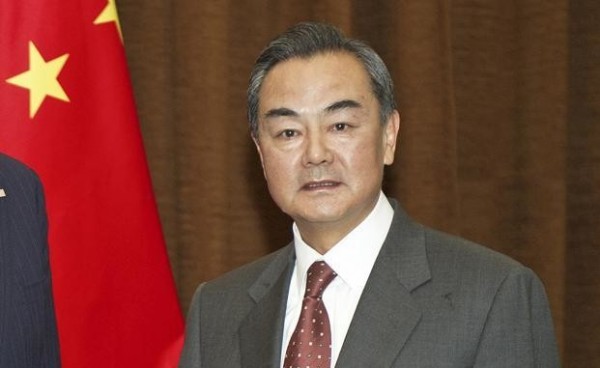 Chinese Foreign Minister Wang Yi: Visits Malawi[/caption]
The visit is designed to strengthen economic ties between Lilongwe and Beijing -- including Chinese investment in the Malawi and commercial ties between the two countries.
Apart from meeting Mutharika, the Chinese Foreign Minister’s visit will see him holding bilateral talks with his local counterpart, George Chaponda, according to a statement released by the Chinese Embassy in Lilongwe.
“The visit and the subsequent bilateral talks aim at cementing the cordial relationship between the two countries, which have just celebrated seven years of diplomatic ties.
“It comes at an opportune time when there are intense visits between the two countries. Therefore, the Chinese foreign minister’s visit takes the ties to new heights as China continues to position itself in Africa by promoting the win-win situation,” said the embassy’s spokesperson Wang Junchao.
Wang’s visit marks the beginning of his first leg of tour of Africa that will see him visit Mauritius, Mozambique and Namibia, before attending a
Chinese Foreign Minister Wang Yi: Visits Malawi[/caption]
The visit is designed to strengthen economic ties between Lilongwe and Beijing -- including Chinese investment in the Malawi and commercial ties between the two countries.
Apart from meeting Mutharika, the Chinese Foreign Minister’s visit will see him holding bilateral talks with his local counterpart, George Chaponda, according to a statement released by the Chinese Embassy in Lilongwe.
“The visit and the subsequent bilateral talks aim at cementing the cordial relationship between the two countries, which have just celebrated seven years of diplomatic ties.
“It comes at an opportune time when there are intense visits between the two countries. Therefore, the Chinese foreign minister’s visit takes the ties to new heights as China continues to position itself in Africa by promoting the win-win situation,” said the embassy’s spokesperson Wang Junchao.
Wang’s visit marks the beginning of his first leg of tour of Africa that will see him visit Mauritius, Mozambique and Namibia, before attending a